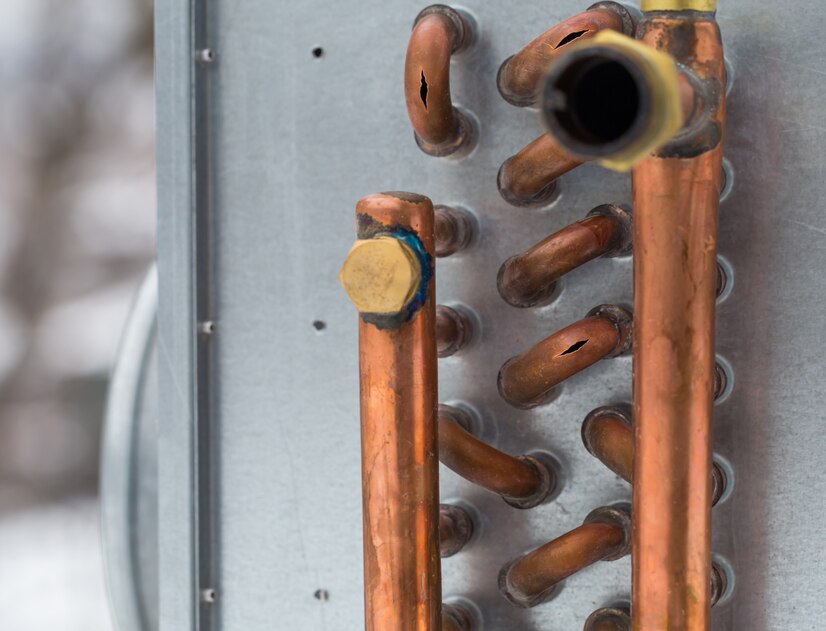Denver’s winter months can bring beautiful snowfall, but the frigid temperatures also increase the risk of frozen pipes in your home — a plumbing issue that can lead to significant water damage and costly repairs if not addressed promptly. As a homeowner, knowing the warning signs that your pipes might be frozen is crucial, so you can take immediate action to prevent pipe bursts and the potential damage they cause.
Find out about the telltale signs of frozen pipes and offer practical advice to help Denver homeowners protect their homes during freezing temperatures. Rely on the expertise of our team at Doctor Fix-It Plumbing, Heating, Cooling & Electric in Denver. We will guide you through the essential steps to look out for frozen pipes and keep your home well-maintained, safe, and efficient all winter long.
1. Recognizing the Warning Signs of Frozen Pipes
Unusual Sounds from Plumbing:
Pay close attention to any strange noises emanating from your plumbing system during freezing temperatures. If you hear unusual sounds like gurgling, whistling, or clanking, it may indicate that water flow is restricted due to ice blockage within the pipe.
Reduced or No Water Flow:
One of the most apparent signs of a frozen pipe is a reduction in or no water flow. If you turn on the faucet and only a trickle of water comes out, or there is no flow, it could mean that the pipe supplying the faucet is frozen.
Frost on Exposed Pipes:
Visibly frosty pipes are a sure sign of a frozen issue. Check exposed pipes in your basement, crawl space, or under sinks for frost accumulation on the exterior. If you notice frost on the pipe, the water inside is likely frozen as well.
Unpleasant Smells from Drains:
If a pipe is partially or fully blocked by ice, trapped odors can back up and seep through the drains. Unusual or foul smells near sinks, showers, and toilets may indicate a frozen pipe problem that needs immediate attention.
2. Most Vulnerable Pipes and Areas in Your Home
While any pipe in your home can potentially freeze, some areas and pipe materials are more susceptible to freezing than others. Understanding which parts of your home are at the highest risk for frozen pipes can help you focus your preventative efforts.
Outdoor Pipes:
Pipes exposed to the elements, such as hose bibs, swimming pool supply lines, and sprinkler systems, are particularly vulnerable to freezing and can often be the first to freeze when temperatures drop.
Uninsulated Pipes:
Insulation is crucial for maintaining the temperature of your pipes, and pipes lacking proper insulation, such as those in basements or crawl spaces, are more likely to freeze.
Pipes in Unheated Areas:
Pipes that run through unheated areas of your home, such as garages, attics, or exterior walls, tend to have a higher risk of freezing, particularly if they lack insulation or are exposed to drafts.
Copper and Galvanized Steel Pipes:
Metal pipes, such as copper and galvanized steel, are more likely to freeze than plastic pipes because metal is a better conductor of cold.
3. How to Safely Thaw Frozen Pipes
If you’ve discovered a frozen pipe in your home, it’s essential to act quickly but safely to thaw it and prevent potential bursting. Here’s how you can address the issue:
Shut off the water supply:
First, turn off the main water supply to your home to minimize water damage if the pipe happens to burst during the thawing process.
Open faucets:
Open the faucets that are served by the frozen pipe to relieve any built-up pressure and allow the water to flow freely once the ice has melted.
Apply heat gently:
Using a hairdryer, a portable space heater, or heat tape, slowly and carefully apply heat to the frozen section of the pipe. Start as close to the faucet as possible and work your way toward the blockage. Do not use open flames, such as blowtorches or propane heaters, as they can damage the pipe and cause fire hazards.
Monitor the process:
Continuously monitor the thawing process, ensuring the heat source is always a safe distance from the pipe and not causing damage. Check for any leaks or signs of pipe damage throughout the process.
4. Preventing Frozen Pipes in the Future
To minimize the risk of frozen pipes in your Denver home, consider implementing the following preventative measures:
Insulate your pipes:
Adding insulation to your pipes, particularly those in vulnerable areas, can help maintain their temperature and reduce the risk of freezing.
Seal air leaks:
Cold drafts can contribute to pipe freezing. Identify and seal any gaps or cracks around your windows, doors, walls, and foundational areas to help keep your home’s interior at a consistent temperature.
Keep the heat on:
Maintaining a consistent indoor temperature, ideally above 55°F (12.8°C), can help prevent freezing in your pipes. If you’re going to be away from home during freezing temperatures, make sure to leave the heating running at a low setting to protect your pipes.
Drain outdoor pipes:
Before winter arrives, disconnect and drain water from outdoor hoses, sprinklers, and pool systems to reduce the risk of freezing.
Open cabinet doors:
Warm air circulation can help keep pipes warm. Opening cabinet doors under sinks allow warm air to reach any exposed pipes.
Allow a continuous trickle of water:
In extremely cold weather, allowing a small, continuous trickle of water through faucets connected to vulnerable pipes can help prevent ice buildup and blockages.
Safeguard Your Denver Home from Frozen Pipes and Water Damage
Staying vigilant against the threat of frozen pipes is an essential responsibility for Denver homeowners during the winter months. By recognizing the early warning signs, such as unusual sounds, reduced water flow, visible frost on pipes, and unpleasant smells, you can take prompt action to address any frozen pipe issues and prevent costly damage. Additionally, taking preventive measures, including insulating your pipes, sealing air leaks, and maintaining your home’s heat, will go a long way in keeping both your plumbing and your home safe during the coldest seasons.
Should you suspect or encounter frozen pipes in your Denver home, trust us at Doctor Fix-It Plumbing, Heating, Cooling & Electric for expert plumbing, HVAC, and electrical solutions. Our experienced team can diagnose and resolve all your frozen pipe issues promptly, effectively, and professionally. Contact us today for reliable pipe repair services and keep your home protected and running efficiently throughout the winter.
















